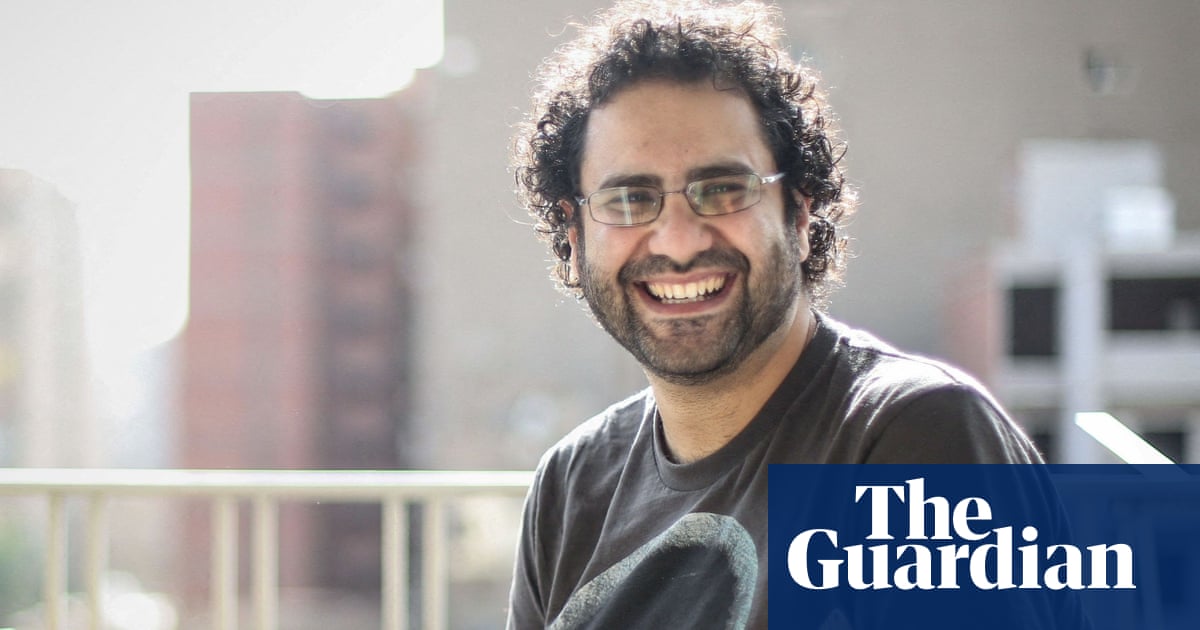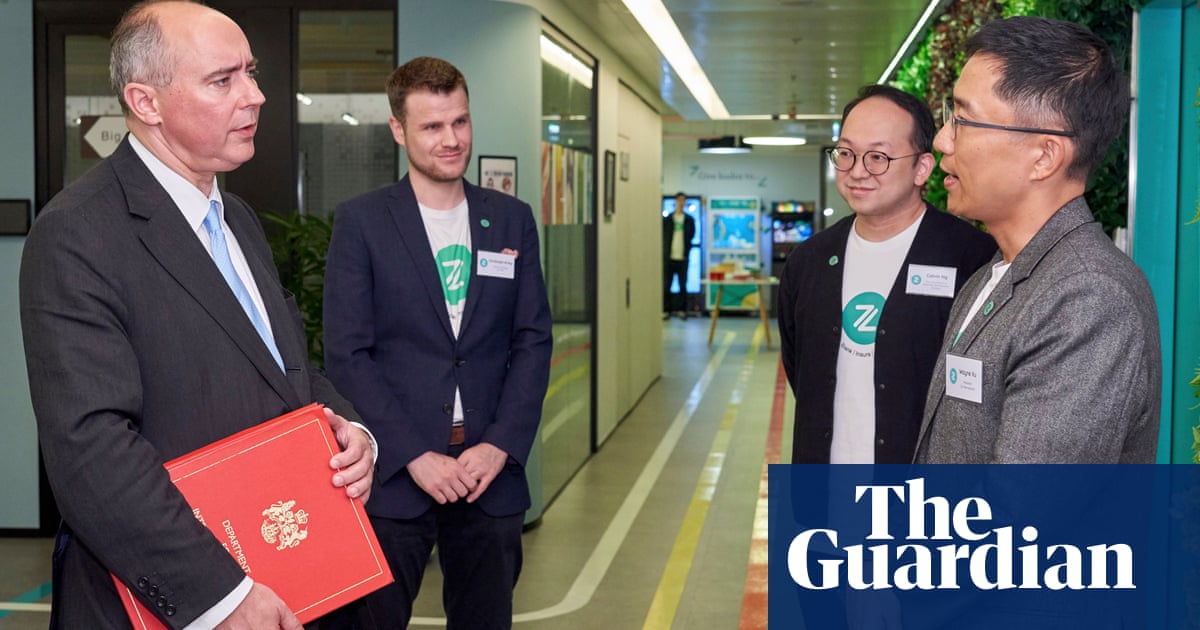
More than 100 MPs and peers have written to the foreign secretary to express concern over the lack of progress to free a jailed British-Egyptian activist.
It comes seven months after the prime minister, Rishi Sunak, shook hands with Egypt’s president, Abdel-Fatah al-Sisi, while Alaa Abd el-Fattah was close to death due to a hunger strike.
The former shadow foreign secretary Hilary Benn; the former leader of the Conservative party Iain Duncan Smith; John Montagu, the 11th Earl of Sandwich; and the last British governor of Hong Kong, Chris Patten, wrote to James Cleverly to “express our concern at the lack of progress on the case of Alaa Abd el-Fattah”.
“Private lobbying of the Egyptian government, even at the highest levels, is yet to deliver results. This calls for fresh approaches that draw on traditional British strengths of international diplomacy,” they said, demanding that the UK took the lead when it came to addressing the UN human rights council over the situation in Egypt.
“We also urge you, as a matter of priority, to update the FCDO’s travel advice to align with US travel advice on the situation for detained nationals in Egypt,” they added.
This year marks a decade since the military coup that brought Sisi to power, a period in which he has stifled all forms of political dissent, jailed journalists and activists, and cracked down on any form of potential opposition to his rule. Abd el-Fattah and his family have been targeted frequently: the 41-year-old organiser and writer has spent most of the past 10 years in prison, accused of terrorism charges and breaking a law that essentially bans protest in Egypt.
Sunak publicly shook hands with Sisi during the Cop27 climate conference last November while Abd el-Fattah remained incarcerated – severely weakened by a prolonged hunger strike, and later water strike – in a high-security prison in the desert. As Sisi welcomed world leaders to Egypt, Abd el-Fattah repeatedly “[smashed] his own head into his cell wall”, his family said, to demand an investigation into his case. He collapsed and was provided with intravenous fluids.
Just days before his meeting with Sisi, Sunak wrote to Abd el-Fattah’s sister, Sanaa Seif, who had previously held a sit-in outside the Foreign, Commonwealth and Development Office to demand action by the government on the issue. “We are totally committed to resolving your brother’s case; he remains a priority for the British government both as a human rights defender and a British national,” he told her.
Yet, in the almost eight months since that letter on 5 November last year, there has been no progress.
The authors of the letter to the foreign secretary wrote: “You are of course aware that while the two leaders were meeting, Alaa was perilously close to death, collapsing just days later.
“Since he chose to end his hunger and water strike, he has remained imprisoned in his cell and has still not received a single visit from a consular official, despite repeated commitments to Alaa’s family from British ministers and officials that they are doing everything they can.”
Abd el-Fattah and his sisters gained British citizenship through their mother, with Abd el-Fattah receiving his citizenship while incarcerated in December 2021. However, the Egyptian authorities have refused to recognise his British nationality, preventing consular access to him while in detention and prompting his hunger strike in protest last year.
The group of MPs and peers highlighted to Cleverly the risks of the Egyptian authorities not recognising dual nationality, and urged the minister to update the Foreign Office’s advice on travelling to Egypt to match the warnings of risks to dual nationals issued by the US state department.
“It is a matter of serious concern that British nationals do not have clear advice to rely on in this matter, which is vital for their personal security,” they said. “The fact that the UK has been refused consular access to Alaa Abd el-Fattah suggests that the situation of British dual nationals is similar or even worse to that of Americans.”












